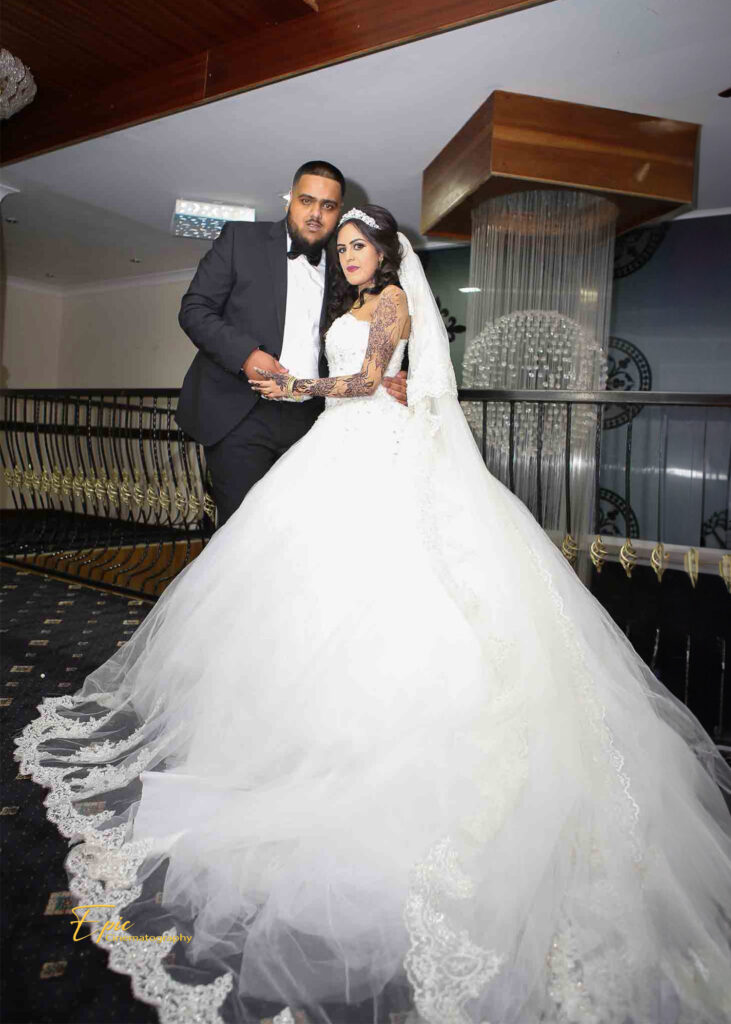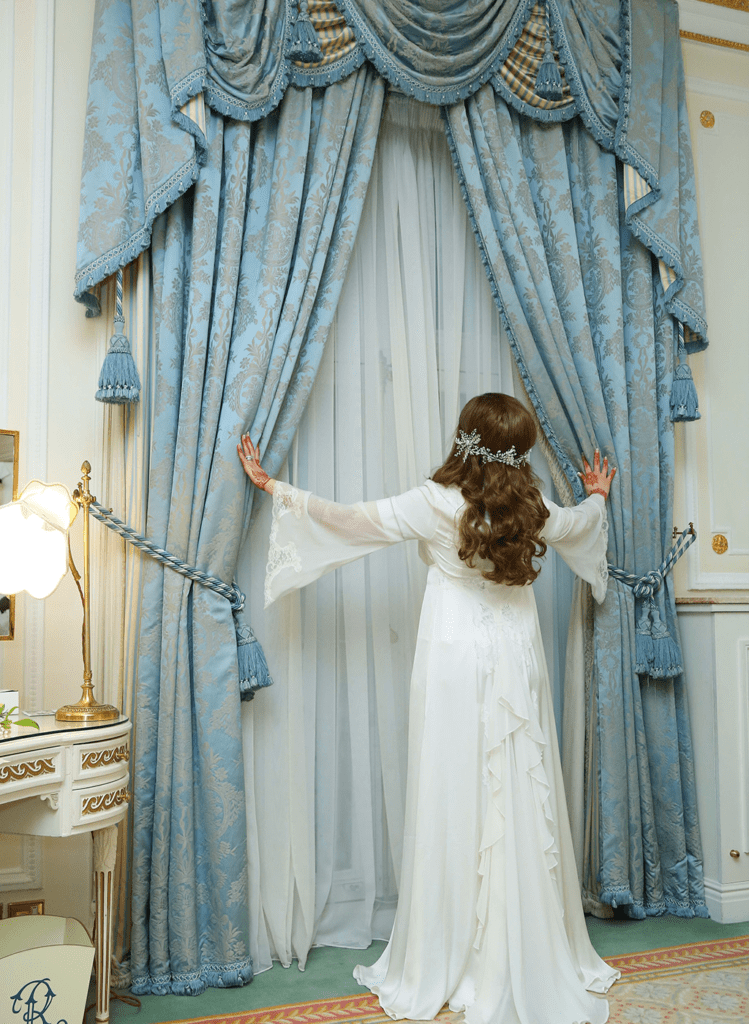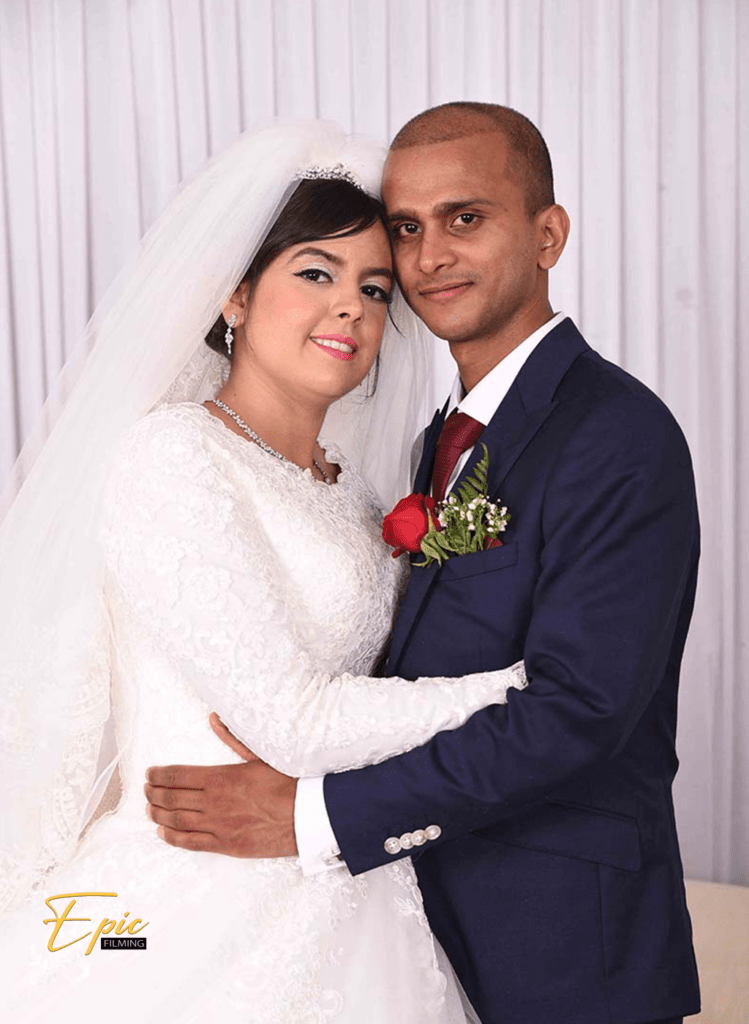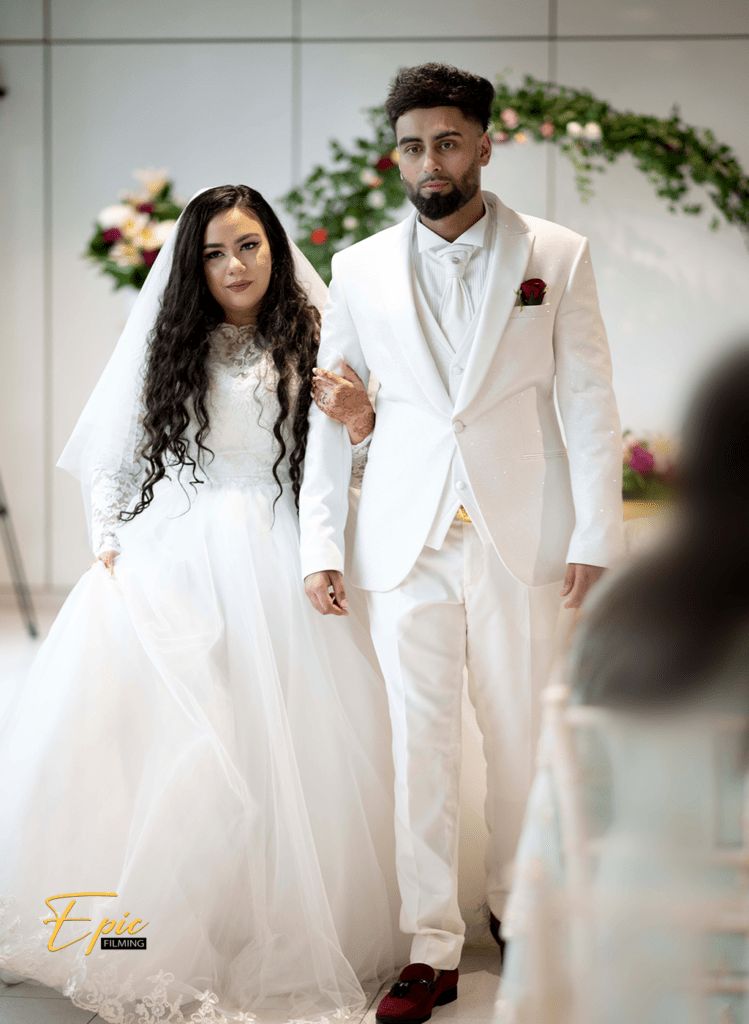Arabic Weddings

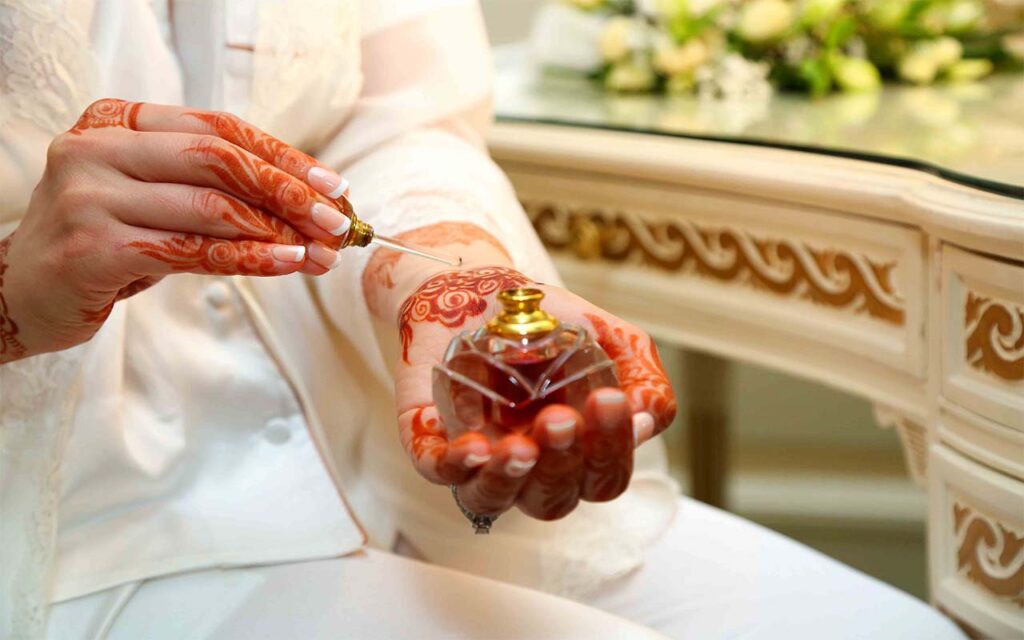
Arabic weddings are a celebration of tradition, culture, and love that have been cherished for generations. These ceremonies are steeped in customs that date back centuries, forming an essential part of Arab identity. They are not just events but powerful expressions of unity, faith, and family bonds. Arabic weddings are occasions of great joy and significance, blending religious traditions, customs, and regional influences into unique and memorable celebrations.
Muslim weddings vary from one region to another, but they all share common threads. They are characterized by elaborate preparations and gatherings of family and friends. The engagement period, known as the “Katb al-Kitab,” is when the formal contract is signed. This marks the official engagement, and both families come together to celebrate. The wedding day itself is a spectacle of elegance, with the bride dressed in a stunning gown and adorned with intricate jewellery. The groom is equally resplendent in his traditional attire. The ceremony often takes place in a mosque, where the couple exchanges vows and receives blessings from an Imam.
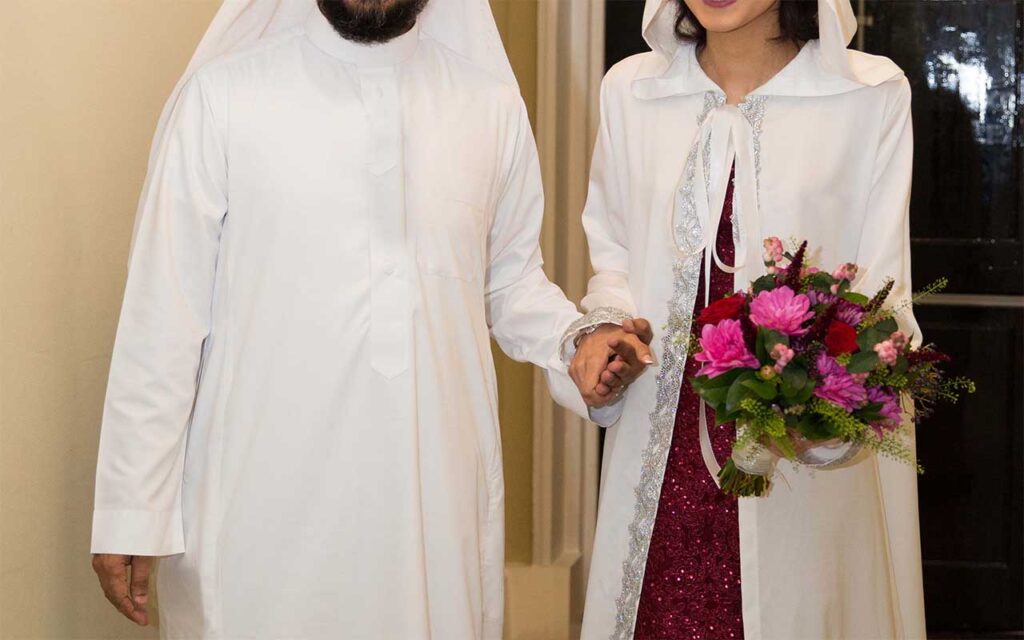
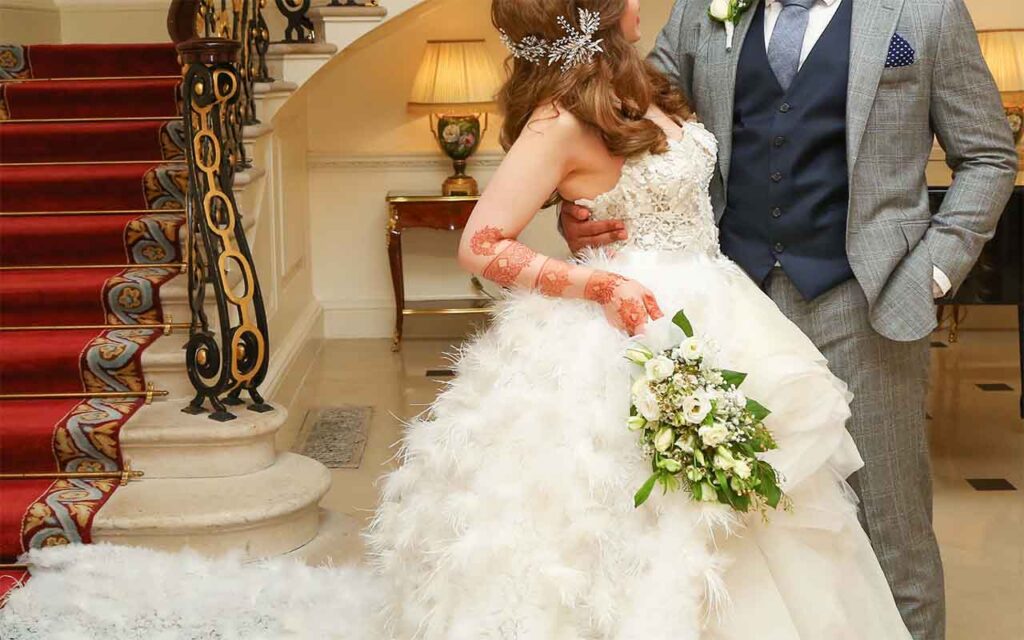
One of the most iconic elements of an Arabic wedding is the “Zaffa,” a lively and colorful procession where the couple is paraded through the streets, accompanied by music, dancing, and ululating. The Zaffa reflects the community’s joy and brings the couple to their reception venue, where the real festivities begin. Arabic weddings are renowned for their hospitality and feasting. Elaborate buffets feature a wide array of Middle Eastern and North African delicacies, such as kebabs, couscous, falafel, and baklava. The celebrations are punctuated with dance and music, as guests engage in the “Dabke,” a traditional line dance.
In recent years, Muslim weddings have embraced modern elements, with live bands and DJs providing contemporary music for dancing. However, the core customs and rituals remain, ensuring that the rich cultural heritage of Arabic weddings is upheld.
Arabic wedding photography and videography play a crucial role in capturing the beauty and significance of these events. The opulent decor, ornate attire, and heartfelt emotions are all carefully preserved for posterity. Each wedding serves as a visual narrative of love and unity.
In conclusion, Arabic weddings are powerful expressions of culture, tradition, and love. These events are not just weddings; they are cultural landmarks that bring communities together. Whether they take place in the heart of Cairo, the historic streets of Marrakech, or in Arab communities around the world, Arabic weddings are a testament to the enduring traditions and the unifying power of love.
